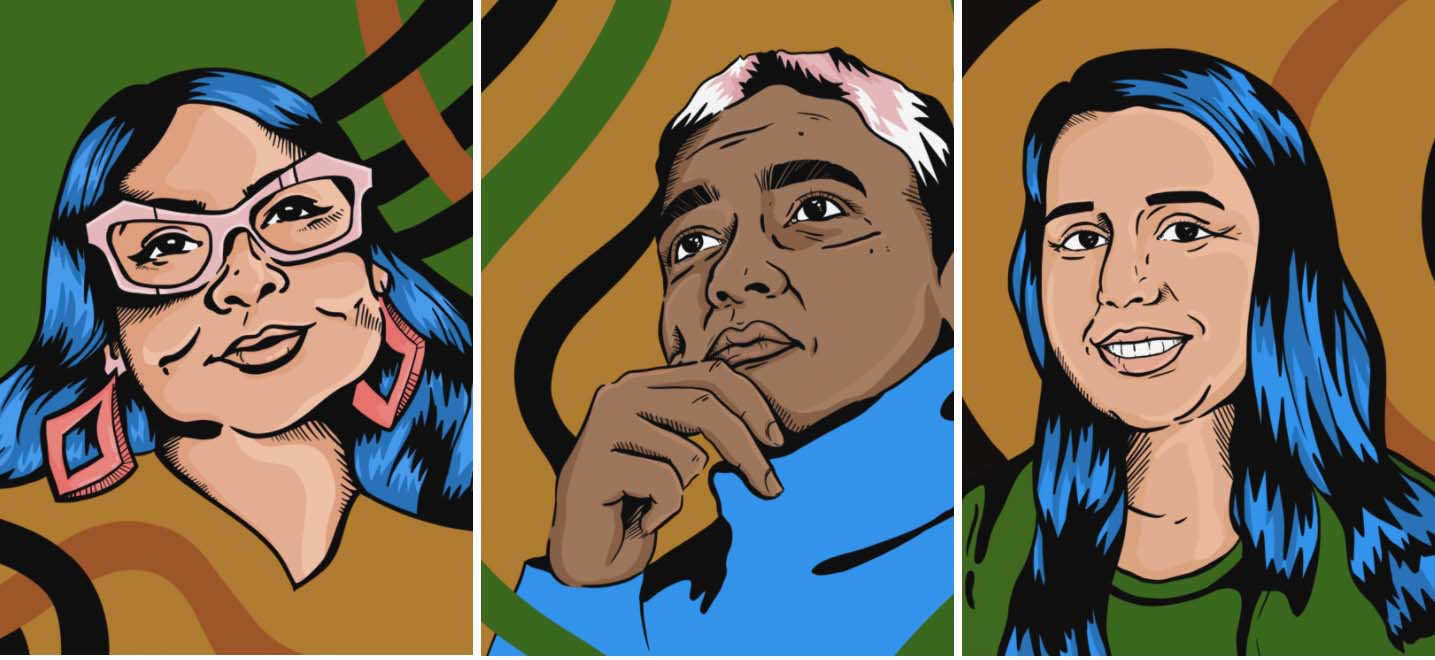
Tishman Environment and Design Center Prioritizes the Interconnected Challenges of Environmental Degradation and Racial Injustice
The past year was a tumultuous one, with several interrelated crises – the public health emergency caused by COVID-19, the economic crisis that it sparked, the effects of systemic racism, and the ongoing climate crisis — affecting the world’s population, with a disproportionate impact on communities of color and low-wealth communities. Throughout this time, the Tishman Environment and Design Center continues to be a force for change, collaborating on innovative solutions to the interconnected challenges of environmental degradation and racial injustice. The Tishman Center’s environmental efforts, focusing on climate and environmental justice for the most-impacted communities, ranged from creating programs to collaborate with the environmental justice movement to producing research that can inform the new presidential administration.
This February, the Tishman Center, working in collaboration with the Social Movements + Innovation Lab, launched the Environmental Justice Movement Fellowship (EJM Fellowship). The program, co-founded by Ana Baptista, assistant professor of professional practice and the associate director of the Tishman Center, and Sujatha Jesudason, professor of professional practice in management and founder of the Social Movements + Innovation Lab, is being developed with and for environmental justice grassroots leaders. Baptista and Jesudason bring combined decades of experience in the Environmental Justice Movement and designing and leading innovative leadership development programs for social justice activists. The fellowship is funded by the NorthLight Foundation, which provided seed funding in 2019, and the JPB Foundation, which joined the effort in 2020.
Under the guidance of new program director Angela Mahecha, the two-year program provides space for frontline leaders to prototype, reflect, share their decades of experience with new generations of activists, and envision the future of environmental justice organizing. Mahecha has spent more than two decades working in the environmental justice movement at both the grassroots and the global levels. Most recently, she served as the first Latinx executive director of the Climate Justice Alliance, a national network of frontline and grassroots communities and organizations advocating for equity and racial justice in climate action.
“To make change at the scope and scale that is necessary for our collective survival, we must invest in the movements that courageously break from the status-quo and seek creative paths to build the new, more just world we want to live in,” says Mahecha. “We must invest in the leadership of the frontlines and support their vision. That time is now. I’m so excited to build the kind of program the movement has been asking for.”
A key tenet of the Tishman Center is to conduct research in collaboration with frontline, grassroots, and community-based organizations and coalitions, and the EJM Fellowship is aligned with that mission. Preliminary input about the program was captured during a 2019 assessment conducted by The New School and last year, movement leaders gathered in a series of conversations called Radical Reimaginations for Climate Justice to further explore movement building, strategies for advancing climate justice, and potential focus areas for the fellowship.
“The New School was founded 100 years ago on the premise that scholars, academics, and students should question, debate, and discuss the most important issues of our time. Given the current crisis, we can’t continue with business as usual,” said Jesudason in a press release announcing the program. “We need more creative approaches to challenging and changing the status quo. Core to this fellowship is asking ourselves: What could we be doing differently, or what different things could we be doing, to change our current trajectory?”
“Investing in the leadership of the environmental justice movement is a non-negotiable. The Tishman Center has been a home base for environmental justice research partnerships, and we’re excited to now be able to contribute to a generative space that supports a resilient movement,” said Baptista in a press release. “By decolonizing our work and ourselves, we can build the trust and relationships that are foundational to scale more contentious and visionary approaches to climate justice.”
The landscape assessment was designed to learn the needs of grassroots community leaders in their climate justice work. The results revealed leaders sought more opportunities to creatively generate and iterate on approaches to their work, collaborate with other leaders, develop power-building skills, and scale up impact. Several Black, Indigeneous, and People of Color (BIPOC) leaders also participated in the Fellowship’s video blog series Environmental Justice Leadership is Non-Negotiable, in which they uplifted their experience and wins introducing people-centered strategies that challenge the political, social, and economic systems responsible for decades of environmental racism and inaction on climate change.
“Replication isn’t the goal when environmental leaders collaborate. Rather, what we’re creating together are groundbreaking solutions that are unique to the communities we come from,” said Melissa Miles, Executive Director, New Jersey Environmental Justice Alliance. “There is so much that can be learned from other leaders in a space like this fellowship, while at the same time staying accountable to our home bases.”
The fellowship is just one of several ways the Tishman Center is collaborating with partners and those most impacted by the climate crisis in this historic moment. In recent months, Baptista served as an advisor to the U.S. Environmental Protection Agency’s transition team, chaired by Lisa Garcia, and the White House Council on Environmental Quality, chaired by Cecilia Martinez. The Center is developing research and maps for the Equitable and Just National Climate Forum, which will inform recommendations for identifying EJ communities for the President’s climate plan and for the development of mandatory emissions reduction policy for power plants located in communities that are disproportionately affected by pollution. The Tishman Center also joined with the Equitable and Just National Climate Platform and the Center for American Progress to convene environmental justice organizations, academic experts, and national environmental groups to further develop recommendations for the new administration. Amongst these are recommendations on how to meet its commitment to deliver 40 percent of its investment in clean energy to environmental justice (EJ) communities.